#F-86D
Explore tagged Tumblr posts
Video
F-86H-53-1296-166TFG by Michel Klaveren Via Flickr: Via David Wheeler
#F-86H-#F-86A#USAF#ANG#F-86L#F-86D#F-86F#QF-86F#QF-86H#F-86#POINT-MUGU#VX4#PMTC#NAVY#DRONES#EDWARDS#MOFFETT#CHINA-LAKE#flickr
27 notes
·
View notes
Text


An all-weather interceptor. North American F-86D Sabre in the Cold War Gallery at the National Museum of the U.S. Air Force, Dayton, Ohio. The aircraft on display came to the museum in August 1957.
7 notes
·
View notes
Text
F-86D Sabre Dog

25 notes
·
View notes
Text
Wobbledog codes :33
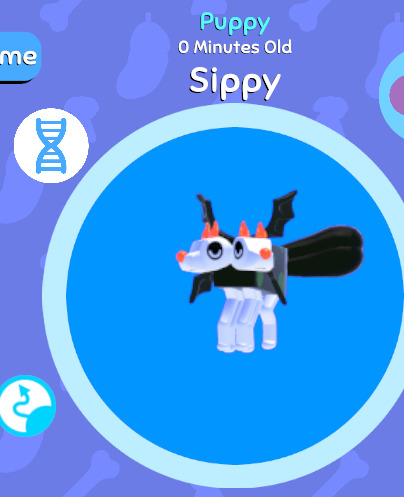
4A71F50b4DD50A8^7=^4a39UE:Fb08024A895^F042FB5FCD5f9y863F8:DY4DAfCdFF7BaDD^AD4A80=3975E1AA=bbDA0BDCc70^33D684D;<5FF125iA0=C59B=C;:<AF9F:a=E8237b693b<:6Fb7A7821<:3=E:aa4938P3F;<b03CF8B^:F93A0EFeFC3998FFC46P0F:.F3D;F1<37EF6P92768253112106ipSp1<^a1EAFd6A5^97Da0BCC58D50^6E5025016C2BA:1^E1C8<^241a5.a7B371208FD9F8C

a6FA24eA5a5<F3Dc6=453^1D302050E5.F0:3^bFC09FE893BFb0A25121CFE54^P0Ya60828a339BD<90ECDAFF=009F3=8C3Ac8c116:F;2b0F11d6b67c<0b^F2:0a==4:a<<4:ag:2E66E6^4F10:1Fd57<3A7C81<Fb=8BEE=BF=AaP<PFC0F;^=6DCFcb19F7^FrCa0h^F5CF05F9b2F7<aF<E70^011UbF05:aBd64A0C1AjA0aF01aCe2894E32133F5a38AFD0F98DBa9FE3CCa771a04A3^a1^4D8F3FF6F

F3F38FFBF84AE:EC108=B^1=80AF::87^4501.0DC0eDDCF8tEAc490A0=1B6F87^14DAs5e0BC0b14C15a83F9092437ACAB51290B9C7=BA47F:E;3d=:^:FEaaa63acCcaD9D1a:978;F<<36:8=cBE312Ab=86D<3E=^E9<A2=F4E;C37E^^bbU3<Y2C4aFba69a1Ca43F090bF6PEF84=6PEFF3113P424E<0481^3^1uS193BaCF6bba132ACaF6280499a7aD0F8AE6cb10cFF^6EAb=C;7c58DF98B29^DB7B8E980
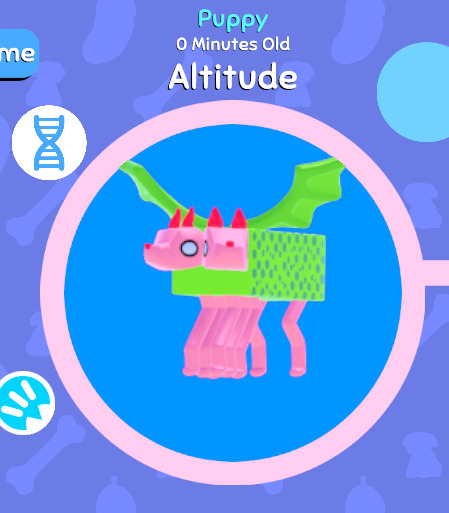
fa2aFb021a56cF3UbF^0CA50<b4B27805831dE08C6C^39F1AFP=a4^8^PFE18tDFEa5D885<:3805:8d8<E19C1DdED6EaE0uEd6eC<7F88aFDb2DF32=F63;=a2D22b6a=9C=97<AC4F6a258D4146822F=F<<9F<=3<F^b=FCF415^101E6^Bb8848Dd3F^7.=060AaD118aFFCdbDFtBCF^6F391FF486P1D:E31^9=8^2=i;10A:F188F151a4lDE77bEFAE:4E2CbDACa:7B78AD0baC9a131F5438;B4C2Cc0E7AY6CE6

0D:c9F8AE033cF60ACbba8C7A80P<88a7891^^.1g42^A^^y<FF2ia09ba4bc127;140Yc7dED90306B19D786A6FA601:E6D6FADAgE64=4c:=5cF:35aCC:40df7;=<614812<ca5:9;0F88197Ba:6;F^85;:83a6:3F9Bbaa2E371F4^FAF^cbAF7CF78016BCD=bLFFF;0CP9FD1FcF581A989U0B413a^^^e=B11916C2E:F0bc2kF2508lA97A47A0:4:<373dA83D0A4E86803844PC:66ED4aC1CFFC2E

AbF0:41:FF0075D^:4E:b<241PC93-F91FB50E:53a0a39a;AD7Da8:8dBF33b1Dr7Cb6EEa08E:42d6E3C2601FFaA4348A1C^7=77;E4BFe3acac30a8Dc<<Fa18:22F1a<7C1abEd02EA244FB:7;5cb13Ac4:c34<^196E<b8A6:2^;4Fd<F4A:7DF6.C7F85B3F1:E011CFFeUa^5YFEC8cCFFP^F36PB1^6141^^2B1D<05:A^2FA0B3F;E4aEF40FC69884aC606fCcBCB0F<76196a^b8F64DC08A43370389

Aa1A:16C05F84F5b2UAb0A0E<1D^189b^3FE0E7CF5057FCF^.6D9404e8<aa2C90M000a0^0^b9805ADBC:E:611DA4E:F^8kA9aED50D0D<;ca89==5442d57ada::aEbA31A:2101Fdb6AC;45<a:2da<610b5F2bE1a;B:baEF3:3EB:^28PF;1CF46F4bFFd3E30^0c;FaF75E;aFc42aP^FP8cB6A22FF00:1c23is5:A;0165D;5100F^^A7h68FDF39FB3C:BaFa37FC6D557C724YDD06F531F4E01bCC9EFca3
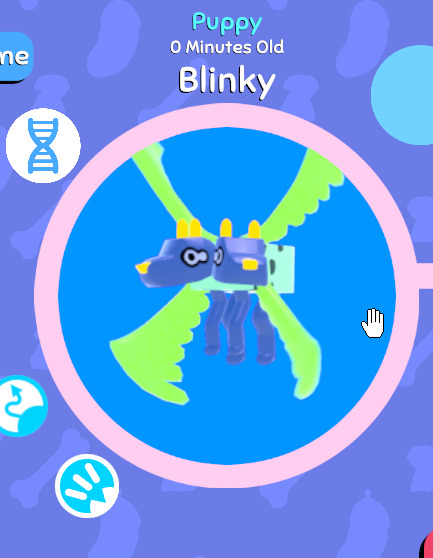
0^FE71a6a3F9E9C26BFF<0CE9EB.5C<Y^02:BDFcBbEcF15:010092A^k0B^F8091aA4B308EFF4151cB8^08B;FDAE5DF<D2;Dal9B<n0i;Ea1;Ec7<C:b9<27:a99b<<0e4DEA4dd:69C9c5ab2FD;6;7FF4F2:8aa;DE3<B77FCD:FbAFAC57d0:3F4642C:CA43bF5F511B0^aay^48aFP90cFPD1U1114P120^9E5:55C51^1826^;FF1C300C43bCE43^2FFb47E0a6C13882F<F:54F234328ED020eEc584F3
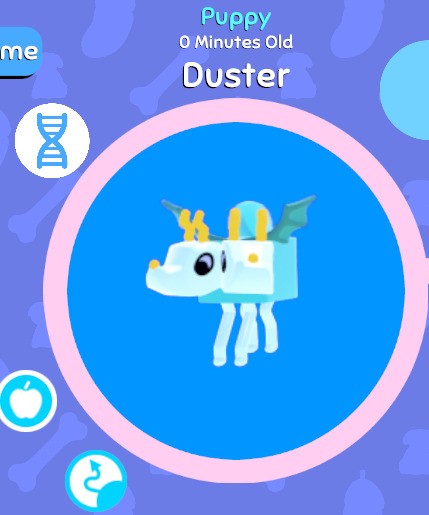
c848<BC9F;EFBc2A109F::c;E6084Y390F0408<F05112dD^:=ED85Ba0FaPc08FDFEa1BAa4624F9421EB6Ea6F22827D=BB9r94=a4^a;8;EcBeEa7:C44a^022C63:=;46:3B=:EC8c52EB:E9:b8=a0bEc46c8;Ca87^D2=5:71A4964F44^:F9.FE62FE5aE19199aBd6Pu296FP3^31F0F516^<U202C^AEF1;^5D:^9^B0114sC4CFAFC485a15500A8F2AB333992531FEA79F065FCAFaccB0bAbC74F99Ft
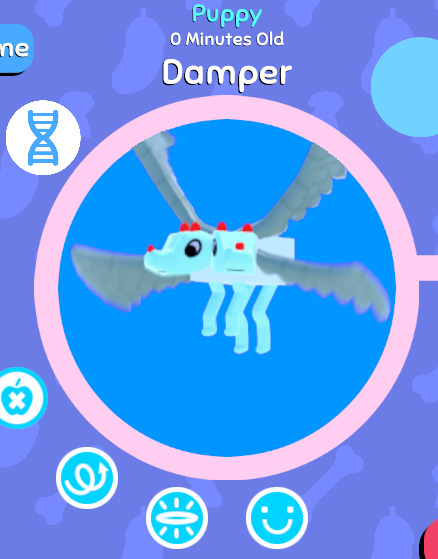
FA01aF4DCAE<F950bB6=9C771Y9514c4E7F5U1801F^800Ea320DP18<8aFc0F29bD7^Dr4b7906A0E642DC1EFa0:F14:=5^Cp578A5F9004459e3440Fcaac4:a<a82::c0;5:87<a29b3FF4a:6a4BC<2F18<5F8<F3:A::C8ADa<F6b^1F5cF3P43C^0F0aD:FFC6F73a0dF5CeDaF52b<BFF121^Pf5;9aa:1aEF1.0^a^:cm3241^62F0058Ab289Bda02A10^8C9A^E0b7B87A0;FD6ca20<BD09:0Ea020836F8FDFB
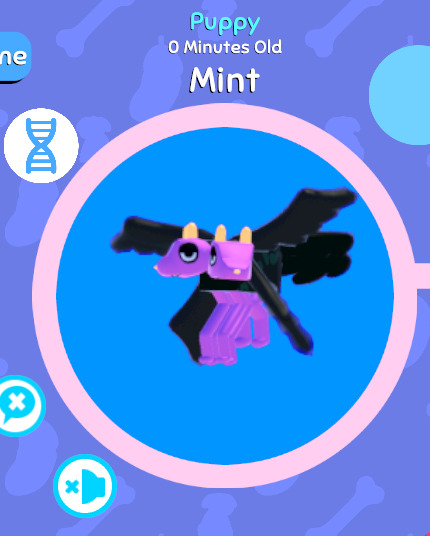
9A9F;00332AA8EEa18a1EF^EE5109=F4.38F4AFD1725D1A893BC33FFt12A7<B0CF5YF08^EEA96A55EFAAC0Fc3B848CcDD<e98CA028aF05<<;Ca=6D:b=05723FE3;3:7438Ca16E32<7g342:4b=85:4::=bFD:b6b:bP5^38<6F;895CFE1E7E780F9F0:=317in0P7PEF66=7C1UdFh2^0^dB^37^M14BF7A12404AB8a:9=714E8^C80CB8^663ACF<D857EEAF03E1^0E2807^E00A798E3DDE5

F84639=1aC8a2F8dEFbaDFA48FDB^7=15Pb3b871094F3=S:005019F01823P0aAaA2b01EaF2c<7:7517A5C284;0A1C=9DC6DD2ED<E:7C2^=CEa701a3A=:2468=9<9b8c:2Ea846C6=2bB=a^4a<916b<41c=C<7<Eb3F667<83F^D733<U2;A^19^DFa3ECBC3E^CB81FFF^3FPpD32a020873^8F7^82A0B.^15617p<2D90f100i48B047B2dFy45AFa2bF48C6F9CC7EF98FE8=990F0YE1EbE8AaD:E481D84E

4AF8;FC37C6:AC18Fa0DA1^3AD3AB1cBC^74aBP0^;80F0Ea^F030E10aEF0135EF5PiD08BA7aFF82C0428^29:E0F543A20F^b:BaFa0A420CD<209FE28acc<:bD:=:c:=7==acb::b22aDb545:D45;2B;;2236:4;c1E:D=5Fc;4a^5FA3:C^06f4F2F2bFFCFF0933Cb1F6^F7ra3FFDY2;^695UFF1P9a1173200C5924D8859C18d07d^5148a5C1a24D47083Fb8F0AaDcBaF730Da8<0.56A2BaC1aA988B33
#wobbledogs#wobbledogs code#wobbledogs codes#wobble dogs#wobble dogs codes#wobbledog codes#wobbledogcode#wobbledogscodes
28 notes
·
View notes
Text
F-104 Starfighter shreds an F-86D Sabre ground target with 20mm gunfire during 1964 weapons trials
17 notes
·
View notes
Text


Revel 1/48Scale F-86D Block89 mode1990(Gulf War) 毎年年初恒例・T&A&F 模型祭りに参加。 開催日当日出動前まで仕上げ作業し なんとか完成。
0 notes
Text

Major Yancey Williams (alternatively spelled Yancy Williams, February 1, 1916 – October 22, 1953) was an Army Air Force/Air Force officer and pilot with the 85th Fighter-Interceptor Squadron and the 332nd Fighter Group, known as the Tuskegee Airmen or “Red Tails”.
He is notable for his landmark 1941 federal lawsuit against the War Department for denying him entry into the Army Air Corps’s pilot cadet program based on his race. Leveraging tactics inspired by the seminal 1898 SCOTUS case Plessy v. Ferguson’s “separate but equal doctrine, the War Department avoided the lawsuit, creating the racially separate and allegedly equal 99th Pursuit Squadron (later the 99th Fighter Squadron) at Tuskegee Institute. This unit would be solely responsible for the training and possible deployment of all African American pilots, ground crew, and support operations.
He was born in Louisiana. He graduated from Tulsa’s Booker T. Washington High School. He attended Howard University, majoring in engineering.
In September 1938, Tuskegee Airmen training impresario C. Alfred “Chief” Anderson started Howard University’s Civilian Pilot Training. He was one of Anderson’s student pilots at Howard. In 1940, Tuskegee Institute recruited Anderson as its Chief Civilian Flight Instructor for the newly-minted program for African American pilots.
He was killed when his North American F-86D Sabre crashed after takeoff from Runway 14 in F-86D-20-NA, 51-3029. When he attempted a northwest turn, he overshot the approach to Runway 36 and tried to land in a nearby cornfield west of Scott AFB. Though he almost crash-landed successfully, his aircraft struck an electric transformer pole, causing the aircraft to explode on impact. An investigation found that the aircraft’s hydraulic elevator control locked up as a result of a misconnection between hydraulic lines. This was the 85th Fighter-Interceptor Squadron’s first fatal North American F-86D Sabre loss. #africanhistory365 #africanexcellence
0 notes
Text
Well, hey, at least they didn’t have to bother with chasing drones like we do now. “If you had a choice of chasing zombies or drones, which would you prefer?” “I don’t have an answer for that, but I will say this, watch out for the zombie drones …”
0 notes
Text
F-86K Sabre dog research
The F-86D Sabre dog is an improved version of the F-86 Sabre both of these being US build aircraft. The F-86 sabre was an American fighter designed for day operations and was also subsonic which was becoming outdated very quickly as at the time jet technology was advancing very quickly. To replace/compliment the aging F-86 the US air force started development on the F-86D Which visually is similar to the F-86 Sabre but shares barley any components. Unlike the Sabre the F-86D features an afterburner a radar and lacks guns as the air force assumed they were now obsolete due to the invention of the air to air missile which is a mistake they would learn very quickly in Vietnam. The US made a variant of the F-86D called the F-86K was designed as a export for nations in NATO such as West Germany and Italy. The F-86K featured guns unlike the F-86D as well as the capability to carry air to air missiles. The Luftwaffe received 88 F-86Ks in 1957 which is why I think it’s a good plane for me to put flying over the battlefield as the West German air force had these in service around the time of the tank stand off and in a cold war gone hot scenario would have most likely used them.
Luftwaffe F-86K Sabre dog

American F-86D Sabre dogs

F-86 Sabre

0 notes
Video
F-86H-53-1304-140TFW-104TFS by Michel Klaveren Via Flickr: Via David Wheeler
#F-86H-#F-86A#USAF#ANG#F-86L#F-86D#F-86F#QF-86F#QF-86H#F-86#POINT-MUGU#VX4#PMTC#NAVY#DRONES#EDWARDS#MOFFETT#CHINA-LAKE#flickr
11 notes
·
View notes
Text

California Air National Guard F-86D AF51-6261
29 notes
·
View notes
Text

USAF 37th FIS North American F-86D Sabre as seen from below.
11 notes
·
View notes
Text
To be fair, that's an F-86D Dog Sabre, which was introduced well after WW2.

@username-for-now-tr If we're talking fighter jets that actually saw service (if not actually combat), there were four examples, the Nazi Me-262, the British Meteor, three American P-59, and P-80

There was one squadron of Meteor fighters that saw service, mostly shooting down V-1 Buzz Bombs

The P-59 was used for conversion training and didn't see combat

Several P-80s were deployed to Italy, but apparently didn't fly any combat missions
“WW2 fighter jets are soooo cool and masculine”
WW2 fighter jets:

46 notes
·
View notes
Photo

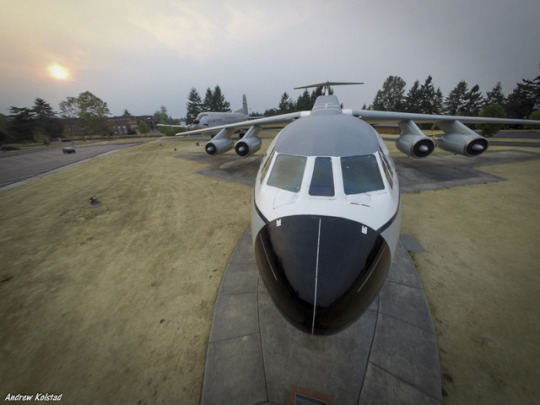




Some shots from JBLM 's McChord Field and museum.
#jblm#Andrew Kolstad#aircraft#air museum#airplane#aviation#historical#aviation history#c-141#c-17#c-17 globemaster iii#usaf#airport#Mobility Guardian#air force#f-86d#b-18 bolo#akp#Washington#Tacoma#air Force Base#airplane pictures
11 notes
·
View notes
Text

-North American Aviation YF-95A Sabre (s/n 50-577). | Photo: U.S. Air Force
FLIGHTLINE: 143 - NORTH AMERICAN YF-95 SABRE DOG
Developed from the F-86 Sabre, the YF-95 was an interceptor/night fighter, the first single engine/single crew aircraft of this type in the USAF.
The North American F-86 Sabre was designed in the late 1940s for the USAAF/USAF as the first swept-wing fighter, serving with distinction in Korea. With the USAF desiring a radar-equipped interceptor variant, North American hastily modified two F-86 airframes with a new nose and external reheat device in place of the expected afterburner equipped J47-GE-17. Though based on the F-86, the new planes had only a 25% commonality with their forbearers, and were redesignated YF-95A (s/n 50-577 and -578). The first aircraft was rolled out of NAA Inglewood plant in September 1949, and in late November it was transported to Edwards AFB for testing. No radar or armaments were fitted during the flight test program.

-The first YF-95A at the North American Aviation flight line, Los Angeles International Airport. Photo: North American Aviation, Inc.
The USAF revised the designation during the test program, and the YF-95A became the YF-86D, with the production aircraft becoming F-86D Sabre Dogs. The F-86D was larger than the F-86A-C, with a longer engine, and the all-flying horizontal stabilizer was enlarged. The new nose featured a radome containing the AN/APG-36 radar, and the six .50 Browning machine guns were removed, with a retractable tray of 24 70mm Mighty Mouse FFAR being added to the fuselage behind the nose landing gear. The sliding canopy of the F-86A was replaced by a clamshell-type in the F-86D.

-An F-86D firing a Mighty Mouse rocket. The fire control could be set to fire the rockets in salvos of 6, 12, and 24. | Photo: USAF
SABRE DOG, SABREDOG, DOG SABRE.
The F-86D proved to be 50mph faster than the F-89 or F-94, two other interceptors of the same period, though the F-89 was more heavily armed, and both of the latter aircraft had two crew, which reduced pilot workload. From a standing start, the interceptor could climb to 40,000' in 5 minutes, 54 seconds with a full combat load, and the max service ceiling was 54,000 feet. Depending on the engine and loadout, the F-86D had a max speed of Mach 0.93, but a max range of only 330 miles (F-86s were not equipped for aerial refueling). Production of the F-86D ended in September 1953, with 2,506 aircraft completed. Sabre Dogs comprised fully two-thirds of the Air Defense Command's interceptor squadrons. After their service with the USAF ended in the late 1950s and early 1960s, many F-86Ds found their way in the air forces of Denmark, Greece, Japan, South Korea, The Philippines, Taiwan and (strangely enough) Yugoslavia, which saw a souring of relations with the USSR in 1948, and engaged in a rapprochement with the west that lasted until 1960s.

-An F-86D-35-NA of the 525th FIS at Bitburg, Germany in 1954. | Photo: USAF
PROJECT FOLLOW-ON
In the mid-1950s, a conversion project for a number of low-airframe time F-86D was undertaken to allow the Sabre Dogs to act under the Semi-Automatic Ground Environment (SAGE) system, the first computerized ground control and intercept system. Under Project FOLLOW-ON, 2192 conversion kits (later scaled back to 981) were ordered, which consisted of the larger wings of an F-86F-40, which had extensions to the wingtips and leading edges as well as slats, all of which improved the aircraft's maneuverability at altitude. The kits also included the new avionics which allowed the aircraft to interlink with SAGE, including an AN/ARR-39 datalink receiver, which also added a new antenna to the fuselage ahead of the starboard wing, an AN/ARC-34 radio set, an AN/APX-25 identification radar and an AN/ARN-31 glide slope receiver. The existing engines, either a J47-GE-33 or J47-GE-17B was retained, as was the retractable FFAR tray. The first flight of a completely upgraded F-86L was in May 1956, and the 317th FIS at McChord AFB received their first planes in November. The service life of F-86Ls in the ADC was short, as they were already being phased out in favor of the F-102 and F-106 by 1957. By 1960, all F-86Ls had been transferred to the Air National Guard. Six ANG squadrons were placed on alert during the Cuban Missile Crisis in 1962, and by the summer of 1965 all of the F-86Ls were withdrawn from ANG service as well. Seventeen to twenty L model were supplied to the Royal Thai Air Force, which served with the Number 12 Squadron at Don Maung Airport until 1976.

-F-86Ls of the 182nd FIS, Texas Air Guard, in 1959. | Photo: USAF

-A preserved F-86L at the -North American Aviation YF-95A Sabre (s/n 50-577). | Photo: U.S. Air Force
EUROPEAN DOGS
NATO forces saw an urgent need for a high-speed interceptor to counter a feared Soviet bomber fleet, and the F-86D was the logical choice. The USAF feared the advanced Hughes E-4 fire-control falling into enemy hand in case of an accident, and proposed a downgraded version instead, swapping the E-4 for the simpler MG-4, which also involved removing the FFAR tray and replacing it with four 20mm cannon. On 16 May 1953 a license was signed with Fiat under which North American would supply components for aircraft to be assembled in Italy. These F-86Ks would be flown by the French Armee de l'Air, as well as the reconstituted air forces of West Germany and Italy. A further contract signed on 18 December saw 120 F-86Ks being built by NAA for the air forces of the Netherlands and Norway. The cannon armaments were later supplemented with launch rails for two or four AIM-9 Sidewinder missiles. F-86Ks were retired by Italy and West Germany in the middle 1960s, replaced by the Lockheed F-104. The Italian Sabres were overhauled by Fiat and passed on to the Turkish Air Force, who used them until 1969. The German F-86s, meanwhile, were sold to Venezuela who had difficulties operating the plane, and most were grounded in 1969 after a series of accidents. At least five of the aircraft were sold to the air force of Honduras, which retired them in 1980.

-An F-86K of the Royal Norwegian Air Force. Photo: Cato Edvardsen

-An F-86K from Jagdgeschwader 74 of the West German Luftwaffe in 1965. This aircraft was later sold to Venezuela. | Photo: German Federal Archive

-A preserved F-86K in the markings of the Italian Air Force. | Photo: Aldo Bidini
#aircraft#aviation#avgeek#airplanes#cold war#airplane#cold war history#coldwar#usaf#aviation history#f86d#f 86d#f86#f 86#dog sabre#sabre dog#sabredog#italian air force#french air force#luftwaffe
30 notes
·
View notes
